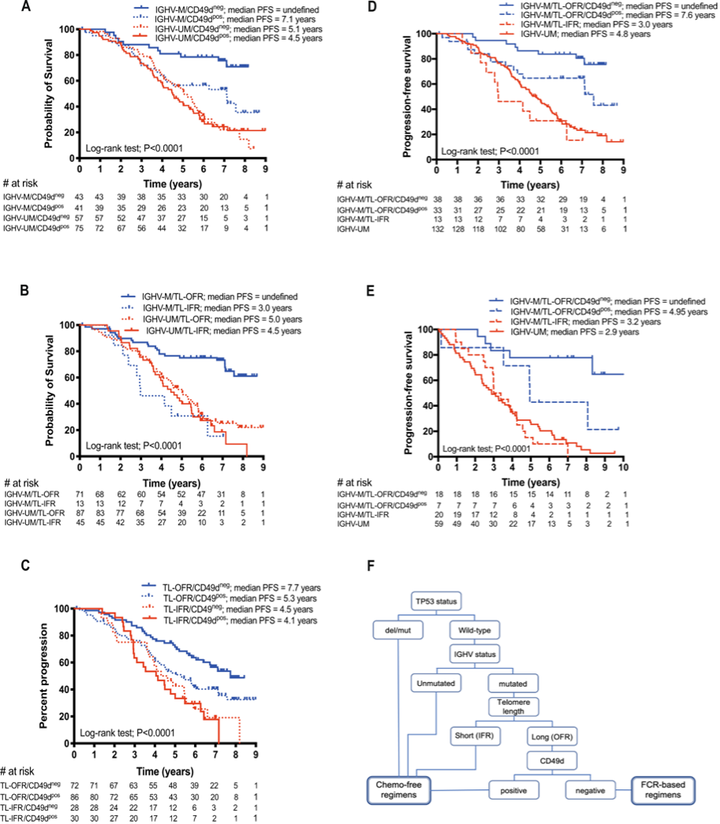Combined analysis of IGHV mutations, telomere length and CD49d identifies long-term progression-free survivors in TP53 wild-type CLL treated with FCR-based therapies

Summary
Combined analyses of the pairs of biomarkers A IGHV mutation status and CD49d, B IGHV mutation status and telomere length and C telomere length and CD49d as predictors of progression-free survival (PFS) in CLL patients. D Shows the overlaid Kaplan–Meier curves for the ARCTIC/ADMIRE cohort, which demonstrate that patients with mutated IGHV genes and short telomeres have a similar, inferior PFS to the unmutated IGHV subset. Furthermore, patients with mutated IGHV genes, long telomeres and low CD49d expression have a significantly longer PFS than patients with mutated IGHV genes, long telomeres and high CD49d expression. E An additional cohort, derived from the FC-treated arm of the UK CLL4 trial, confirmed the findings from the ARCTIC/ADMIRE cohort. F Shows a schematic diagram of the propose a risk-adapted approach to treatment selection, which would contra-indicate frontline chemoimmunotherapy for ~83% of patients.